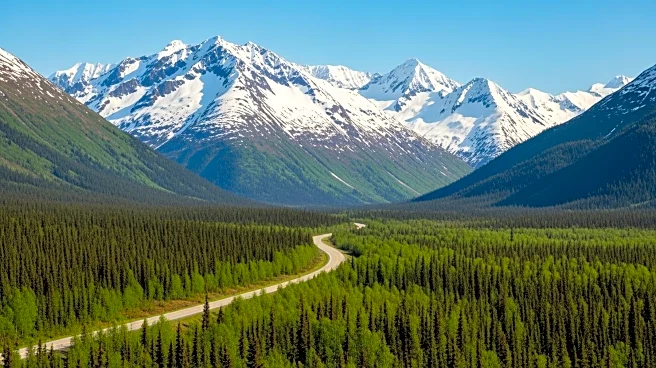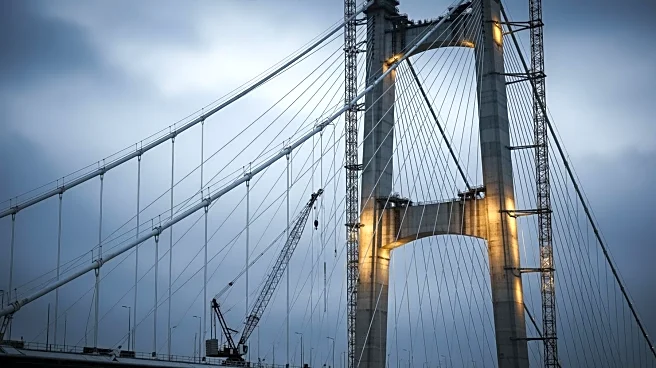What's Happening?
The Trump administration has announced its decision to proceed with a controversial land deal that will allow the construction of a road through the Izembek National Wildlife Refuge in southwest Alaska.
This decision is part of broader efforts to enhance energy development in the region, including opening the Arctic National Wildlife Refuge to oil and gas drilling. The road aims to provide better access for residents of King Cove, Alaska, to medical facilities, as they currently rely on boats to reach the nearest airport in Cold Bay for emergencies. Interior Secretary Doug Burgum emphasized the decision as a balance between human health needs and environmental protection, involving a land exchange with the King Cove Corporation, a Native Alaska group. However, environmentalists and some Indigenous groups oppose the road, citing potential harm to the pristine environment and wildlife, including emperor geese, caribou, and brown bears.
Why It's Important?
The decision to build a road through the Izembek National Wildlife Refuge highlights the ongoing tension between development and conservation. For the residents of King Cove, the road promises improved access to healthcare, potentially saving lives in emergencies. However, environmentalists warn that the road could disrupt critical habitats and introduce pollution, threatening the area's biodiversity. The move also reflects broader policy shifts under the Trump administration to prioritize resource extraction and infrastructure development over environmental preservation. This decision could set a precedent for future projects in protected areas, impacting U.S. environmental policy and conservation efforts.
What's Next?
The construction of the road is likely to face legal challenges from environmental groups seeking to protect the Izembek National Wildlife Refuge. These groups may argue that the road violates environmental laws and could push for court injunctions to halt construction. Additionally, the decision to open the Arctic National Wildlife Refuge to oil and gas development may attract further scrutiny and opposition from environmentalists and Indigenous communities. The Biden administration's previous blocking of a similar land swap deal suggests potential for policy reversals or modifications depending on future political leadership and public pressure.
Beyond the Headlines
The decision to build the road through Izembek raises ethical questions about prioritizing human needs over environmental conservation. It also underscores the complex relationship between federal policies and Indigenous rights, as the King Cove Corporation's involvement reflects the nuanced interests of Native Alaskan groups. Long-term, the road could alter the ecological balance of the region, affecting not only wildlife but also the cultural and natural heritage of the area. This development may also influence future debates on infrastructure projects in environmentally sensitive areas across the U.S.










